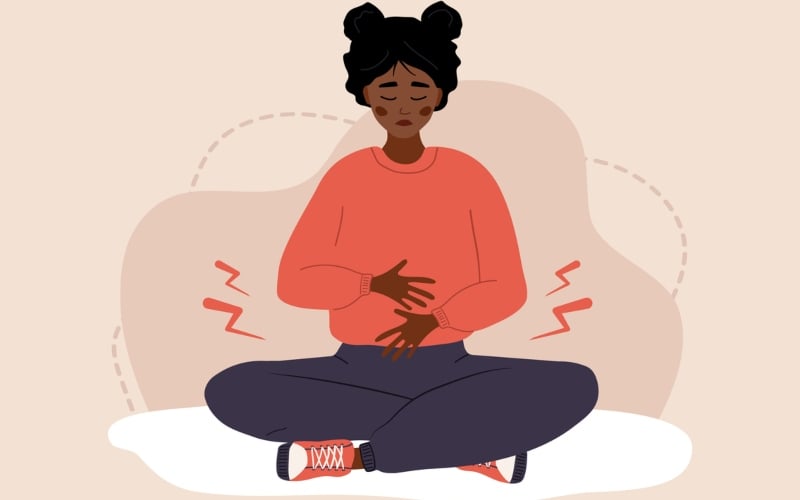Loneliness is a serious public health issue affecting mental and physical well-being. So much so that the UK has a Minister of Loneliness.
According to a review of over 200 scientific studies, loneliness is a risk factor for cardiovascular diseases, diabetes, and other medical conditions. It can cause depression and lead to suicide.
It has also been shown to increase the risk of Alzheimer’s disease, dementia, and certain cancers.
One of the most common ways to describe loneliness is a “sense of being alone,” but it doesn’t have to be that way.
Loneliness affects how we see ourselves and how others view us. Loneliness causes us to experience a lack of connection with others, making it difficult to relate to people and understand what they are thinking or feeling.
It’s a subtle yet powerful way that we can unknowingly impact the lives of those around us. It’s essential to recognize the signs of loneliness to take action to improve our mental health and support the mental health of those around us.
Psychologists agree that feeling lonely affects our behavior, mental health, and physical health.
When people are lonely, they tend to be more critical of themselves and less likely to trust others. They may feel isolated from friends and family and have fewer opportunities for meaningful relationships.
When we feel lonely, we focus on our negative thoughts and feelings rather than positive ones. When we feel connected to other people, we can overcome our loneliness.
It’s essential to keep in mind that we all experience loneliness at some point during our lives. It may be different for us, but everyone experiences it to some degree.
Loneliness is a complicated issue and one that we often don’t recognize as a cause for concern until it’s too late. We can actively work on loneliness, so we should be aware of the warning signs and know what to do to improve our mental health.
Signs of Terrible loneliness
Warning signs of loneliness are:
- Lack of friends or social support
- Feeling lonely in a crowd
- Changes in appetite, eating habits, and weight gain or loss.
- Frequent visits to the doctor because of pain or stomach problems
- Difficulty concentrating and having trouble making decisions.
How to overcome?
The best way to overcome loneliness is to find a hobby you enjoy doing, such as reading, playing an instrument, cooking, or gardening. This will help you make new friends because you’ll meet new people through your hobbies.
There are many other ways to overcome loneliness.
- Join a hobby club, like chess or art groups, and meet new people who share the same interest as you do.
- Volunteer for organizations that help children, the elderly, or the poor, this will make you feel useful and needed in society and give you something to talk about with your friends at parties and other social gatherings.
- Participate in sports teams that require teamwork because this helps you to get out of your comfort zone, learn how to communicate with others, and become more social in general
- Be adventurous; travel is an excellent way for getting away from your problems when things don’t go well at home or work; it also helps develop self-confidence, which can be very helpful if you find yourself feeling lonely at times.
- Take up some type of music lesson, whether it’s piano lessons or singing lessons (or both), these types of classes can teach discipline and focus which are both important traits when dealing with life’s stresses.
Summary
1. Social isolation or feeling lonely is one of the most common mental health problems in modern society. It has been reported that 40% of Americans feel socially isolated and that over 80% of people experience feelings of loneliness at least once a week.
2. People who feel lonely have lower self-esteem, poorer physical health, less motivation, and higher rates of substance abuse than those who do not feel lonely.
3. The more often you feel alone, the more likely you will suffer from depression, anxiety disorders, and other mental health problems.
4. Being around others makes us happier and healthier, so spending time with friends reduces your risk for many diseases, including heart disease, diabetes, and cancer.
5. Loneliness can lead to aggression as people tend to lash out when they’re unhappy or bored because they don’t have anything else to do but find something wrong with others or themselves when they’re feeling low in spirits.
…
As the world becomes increasingly connected, finding time for ourselves is becoming more challenging. As technology increasingly takes over our lives, we’re losing touch with the importance of human connection. Loneliness has been linked to a slew of negative health outcomes, from weight gain to decreased lifespan. Despite this, many of us still feel isolated. By sharing your experience in the comments below, you can help others who are struggling. Don’t be afraid to speak up!
—
This post was previously published on medium.com.
***
You may also like these posts on The Good Men Project:
 White Fragility: Talking to White People About Racism
White Fragility: Talking to White People About Racism  Escape the “Act Like a Man” Box
Escape the “Act Like a Man” Box  The Lack of Gentle Platonic Touch in Men’s Lives is a Killer
The Lack of Gentle Platonic Touch in Men’s Lives is a Killer  What We Talk About When We Talk About Men
What We Talk About When We Talk About Men —
Photo credit: Shutterstock.com
The post Killer Effects of Loneliness and How To Overcome It appeared first on The Good Men Project.
Original Article










